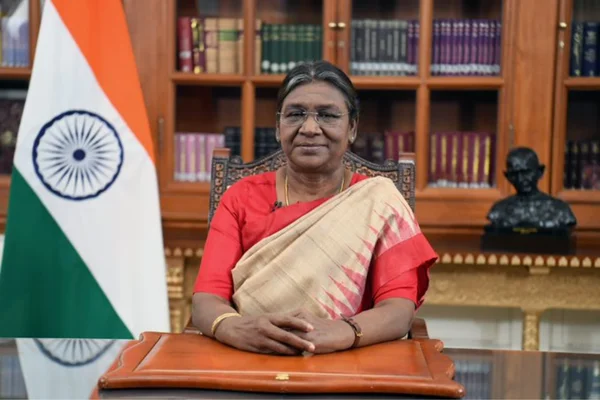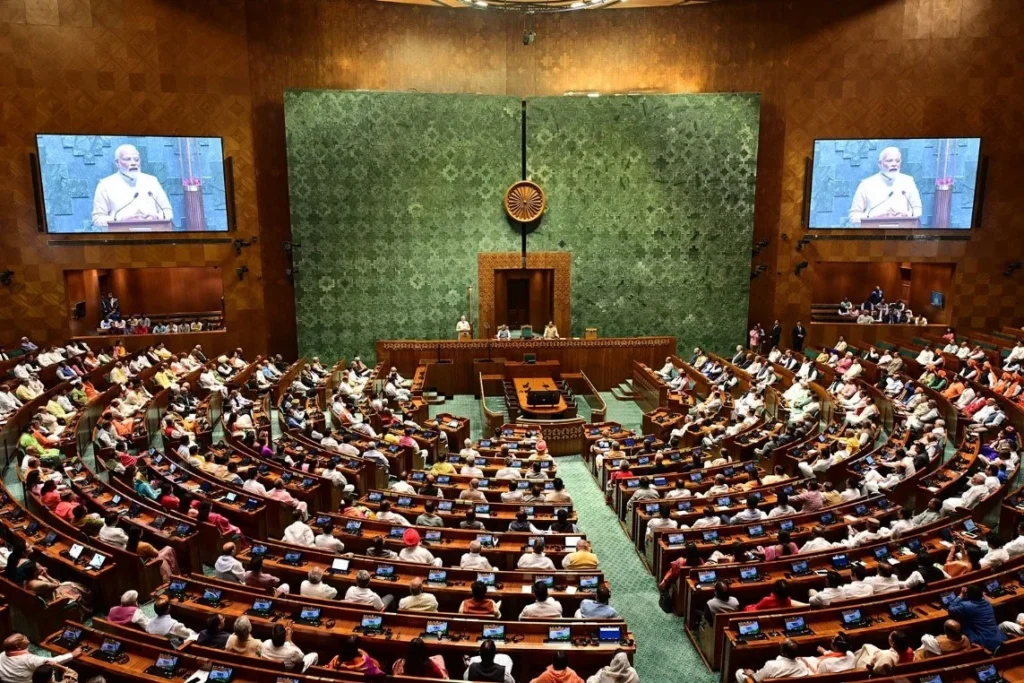Motion of Thanks is a crucial parliamentary procedure highlighting the government’s actions, delivered by the President.
What is Motion of Thanks?
- The Motion of Thanks an important parliamentary procedure, delivered as a speech by the President of India highlighting the actions of the government.
- Article 86(1) of the Constitution provides that the President may address either House of Parliament or both Houses assembled together, which requires the attendance of members.
- Article 87(1) provides for the special address by the President at the commencement of the first session after each general election to the House of the People.
- At the commencement of the first session of each year, the President shall address both Houses of Parliament together and inform Parliament of the causes of its summons.
- The president outlines the policies and programmes of the government in the preceding year and ensuing year.
- The contents of the address are discussed in the Parliament and put to vote at the end.
- This motion must be passed in both Houses (House of the People and Council of States) with or without amendments.
- Any failure in the motion of thanks may lead to the defeat and collapse of government.
Ref: Source
| UPSC IAS Preparation Resources | |
| Current Affairs Analysis | Topperspedia |
| GS Shots | Simply Explained |
| Daily Flash Cards | Daily Quiz |



